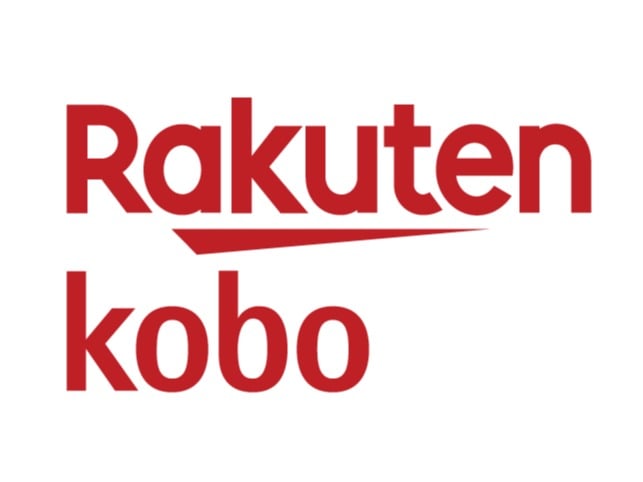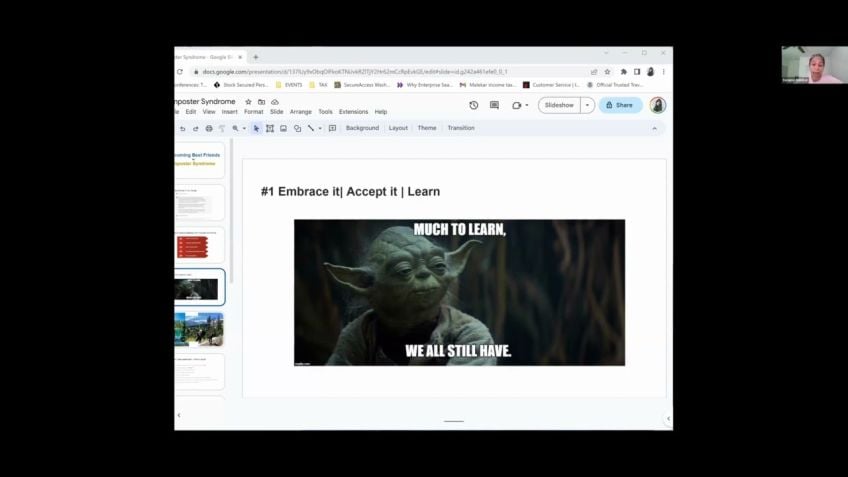
Have you ever felt like you're in over your head at work? Like you're in a role you're not qualified for? That someone is about to notice you don't belong here and demote you? Imposter syndrome is something the vast majority of people will experience in their careers, regardless of industry, hierarchical position, or qualifications.
However, imposter syndrome, in its very origin, is based on and predominantly experienced by women. Many women, especially those in male-dominated industries like tech, will likely encounter these feelings of self-doubt or inadequacy. In this context, imposter syndrome takes on a unique dimension, impacting not only individual confidence but also the overall diversity and inclusivity of the tech world.
In this article, we'll delve into the intersection of imposter syndrome and women in tech, exploring its effects, causes, and strategies to overcome it, ultimately paving the way for a more inclusive and equitable industry.
Elayne Miles, Senior VP of Business Operations at Rakuten Kobo
How have you experienced imposter syndrome in your career and how did you deal with it, what helped change your perspective?
When I reflect on the situations in which I’ve experienced imposter syndrome, they have usually been connected to instances involving a lack of confidence – such as starting in a new role or expectations I place on myself to know all the answers. Understanding the signs has helped me become more self-aware and change my mindset to reframe around growth. If I think about my career as a journey through which I can grow, learn, and stretch myself towards achieving my goals, then it stands to reason that no one single moment defines who I am. This helps to take some of the self-induced pressure off as I take action to gain or regain confidence and overcome the sense of inadequacy.
What advice would you give to other women who are dealing with imposter syndrome?
In those moments of self-doubt, talking through it with a mentor or people you trust and respect can help pull you back from spiraling with imposter feelings. Building a library of positive feedback over time can also serve as a great source of reinforcement that you can tap into on both bad days when the work is hard and good days to keep momentum strong. This can provide a quick confidence boost and a reminder of your strengths to give you perspective and shut down your inner critic. And when presented with new opportunities, say yes and dive in! While you may feel uncertain or intimidated about the chance to flex in unknown territory, remember that your capabilities led you to be considered the right person to take on the challenge. Cue a growth mindset and career journey.
Helena Krupnova, Group Director, R&D, Systems Design Group at Synopsys
How have you experienced imposter syndrome in your career and how did you deal with it, what helped change your perspective?
I have never heard about the imposter syndrome – however, when I looked for the definition in Wikipedia – I realized that it applies to me and I’m part of 70% of the population who are concerned!
In technology, when projects are successful and products work well, it is very easy to get a feeling that it is simple, there are no special efforts, skills, and no talent necessary.
This can precisely contribute to the development of imposter syndrome for leaders who are standing behind.
The complexity of the technology domain means that success is only possible as a team effort – leaders will leverage the competencies of their teams and may get the impression that he or she does not have enough competencies themselves.
Women in general are less confident than men – so it is even easier for women to minimize their contribution to success and doubt their capabilities and talent.
To compensate for the imaginary lack of competencies, some women will work so hard that they can arrive at burnout.
Lack of confidence slows down women's careers – and this is one of the explanations for such a low ratio of women in top management.
What advice would you give to other women who are dealing with imposter syndrome?
First I would recommend looking around you and finding people who believe in your capabilities, seeing your accomplishments and your potential.
In a professional environment – think about who can be seen as your mentors and sponsors. Do not hesitate to reach out to them and ask for feedback and support.
Just sharing facts and getting encouragement can change your perception and inspire the second breath.
Family can be excellent supporters.
I would also recommend stepping back and looking globally at what you accomplished – last year, the last 5 years, last 10 years.
In daily work, it is important to create milestones and celebrate success – so that you and everybody who contributed feel part of it.
When I have doubts – I look back and remember celebrations and milestones and the path that I followed – and it gives me confidence that I’m an expert and not an imposter!
Patricia Gímenez, Software Development Manager at New Relic
How have you experienced imposter syndrome in your career and how did you deal with it, what helped change your perspective?
When I was asked to contribute to this article, I immediately thought “Yes, sure, I have a few examples I can share”. What followed that weekend changed my mind and I realized I did not have a true imposter syndrome experience to share. I was about to contact my colleague to let her know I did not have anything for the article when it hit me, why not share what happened during the weekend? I read a lot about imposter syndrome, and I discussed it even more with some of my friends. To my surprise, they all had different interpretations of this syndrome and very few had anything to do with feeling like a fraud or an imposter. Like me, a lot of my friends have self-questioned their ability/skills to stand up to a new challenge or role, or a key presentation but none of them felt like a fraud. The closest they got to was perhaps a sense of inadequacy or not belonging amongst a male-dominated peer group, just as I had. This made me think that perhaps some of you reading these lines now may have similar feelings and this brought me back to the article.
What advice would you give to other women who are dealing with imposter syndrome?
And this is the thing, feeling “unprepared” when facing a new challenge or role, that’s not fraud, that’s healthy! This feeling has only helped me to grow, both personally and professionally. Understanding that we cannot evaluate our ability when facing something new seems only logical to me. How can we know if we’ll be good at it if we have not done it before? I will admit it is not a nice feeling, it generates some degree of anxiety and anxiety is never pleasant but it’s not imposter syndrome. When facing these doubts, look back at all the challenges you’ve overcome, at all the roles you’ve taken and succeeded at, and ask yourself, why would I not succeed this one more time?
Similarly, experiencing a sense of not belonging in an industry or leadership role that has been traditionally male-dominated is challenging and unpleasant, but it does not make you a fraud.
So forgive me for not really answering these questions or not being able to help you deal with the “real” imposter syndrome. Instead, I will tell you that only by standing proud of our achievements can we break the stereotypes and keep on forging a more diverse and adequate-for-all work environment for future generations.
Sadhana Gupta, Masters of Science in Product Management, Class of 2023 Candidate at Carnegie Mellon University
How have you experienced imposter syndrome in your career and how did you deal with it, what helped change your perspective?
I don’t fit in. Maybe I shouldn’t be a Product Manager.
I was raised with confidence and independence but found myself questioning my worth and feeling like I didn’t fit in. Straight out of college, my enthusiasm was boundless, and I poured my heart and soul into my work. Yet, it never seemed enough. Doubts crept in, and it felt like a constant struggle, wondering if my contributions were valued and if I truly belonged. I withdrew from male colleagues, silenced myself in meetings, and went to unhealthy lengths seeking validation.
I found my inspiration in "Lean In" by Sheryl Sandberg and Nell Scovell, helping me to recognize imposter syndrome and know that I am not alone and there are solutions. Opening up to women in the industry was transformative. It's comforting to know that there's a community that understands and supports you. I started talking openly about my experiences and advocating for equal opportunities. Your unique perspective and voice have value, and you deserve to be there, making a difference.
The journey toward self-acceptance and overcoming imposter syndrome is ongoing. Embrace your accomplishments and growth. You have the strength to overcome these challenges and make a lasting impact.
What advice would you give to other women who are dealing with imposter syndrome?
I recently read an article by Rachel Wynn (an accomplished Product Manager who has personally motivated me a lot!). Her words about the difference between where you are and where you want to be resonate deeply, and her advice is empathetic and valuable.
- Be kind to yourself and celebrate your achievements.
I was the youngest Product Manager at my firm, speaking directly with the CTO, and taking large initiatives with a solid plan. That’s a big win.
- Identify your strengths.
Moving out at the age of 17 and moving across the world twice empowered me with global empathy and ideas. These qualities are invaluable in product management.
- Learn to say "no".
Not everything requires my effort (especially not when it’s not a priority and doesn’t utilize my skills). It's a lesson that takes time, but it's empowering.
- Advocate for inclusivity and challenge hiring policies.
It's important to remember that age should never be a barrier to making positive change.
Have you ever looked at yourself in a fun-house mirror? Imposter syndrome works like that, distorting your self-image. With determination, self-compassion, and a willingness to challenge the status quo, you can overcome obstacles, achieve their goals, and see yourself clearly.
Sonia Comajuan, Senior Engineering Operations Lead at Celonis
How have you experienced imposter syndrome in your career and how did you deal with it, what helped change your perspective?
I believe that the impostor syndrome affects us all to some degree, and it is especially common among engineers. Nevertheless, something that has always helped me is honesty and transparency. While fear of not being good enough paralyzes you, taking the courage to ask is totally liberating: not only do you learn what is missing (and understand that your gap was not that big) but usually you also come to realize that you were not the only one in the room not understanding. So daring to ask actually ends up putting you in a leading position.
Another way is getting trained at the right moment. I recall when I was promoted to the position of Operations Director from being a Project Manager. I was scared to death because I knew nothing about finance management, a requirement for the role, to the point that I was about to refuse the promotion. Then my father came to rescue me. He told me “You will learn that part, just say yes” - and indeed, I found a focused program of one week on finance, which gave me all the necessary knowledge to go ahead successfully in my new role. Just small training pills are usually enough.
What advice would you give to other women who are dealing with imposter syndrome?
As said, I’ve come to realize that impostor syndrome is not exclusive to women, it is much more common than we think. So there is no reason to be ashamed. I recall an occasion when one of my previous bosses, whom I particularly admire, was promoted to a completely new position and was asked that same week to present at the company’s annual kick-off meeting. In front of an audience of more than 200 people, he clearly said: “I do not have much to say because I am new to this role and I do not know much about it yet, but if someone has thought I could do this, it must mean I can”. Brilliant. It is important to understand that the impostor syndrome is a necessary step for growth. Understanding what you are missing, then taking action. Not knowing something is never a problem, as long as we take action to learn and advance. One step at a time. Do never underestimate the power of gradual progression.
Imposter syndrome, a pervasive issue predominantly experienced by women in male-dominated fields like tech, not only affects individual confidence but also hinders progress toward a more diverse and inclusive industry. This article has delved into the intricate relationship between imposter syndrome and women in tech, offering insights into its effects, root causes, and strategies for empowerment. Building a repository of positive feedback, avoiding burnout, and embracing personal growth are key takeaways from these experiences. Remember, self-acceptance is a journey, and the courage to ask for help can be liberating.
To explore this topic further and discover more sessions on mental health and work-life balance, join us at the Women in Tech Global Conference 2024
















